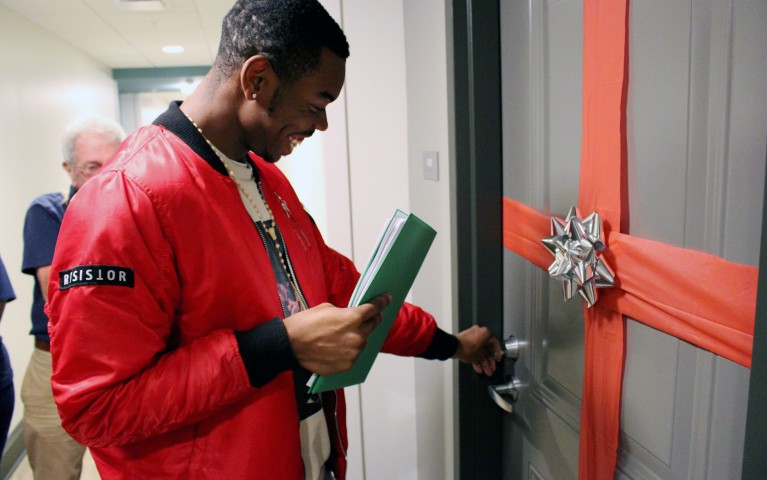Supportive Housing
Housing

The Foundation Of Project HOME’s Model And Impact
The most critical step in an individual’s journey to break the cycle of homelessness is to have a place to call home. Project HOME’s supportive, affordable residences offer permanent housing for individuals and families who had been homeless. Most residents come to Project HOME from a safe haven, a shelter, or from the streets.
Today, Project HOME has over 1,000 units of affordable housing and support services. But housing is just the first step. Person-centered case management is the bedrock of Project HOME’s residential programs. Skilled program staff collaborate with residents to create goals toward self-sufficiency while providing a recovery community. Staff are trained to provide high-quality, attentive support to two primary vulnerable populations:
- Adults, young-adults, and families who have experienced homelessness, with an emphasis on persons who have histories of mental illness and substance use disorder
- Low-income adults and young adults at risk of homelessness
We offer supportive housing in three types of facilities: Safe havens and emergency respites, recovery housing, and permanent supportive housing.
All residents have access to a wide-ranging array of services, including:
- Service coordination
- Personal recovery services
- Health care
- Education
- Social enterprise and employment opportunities


